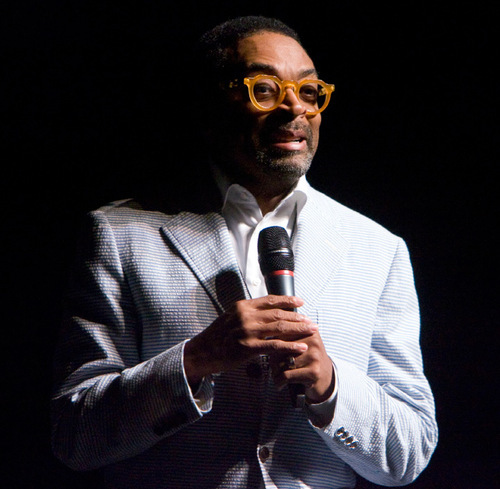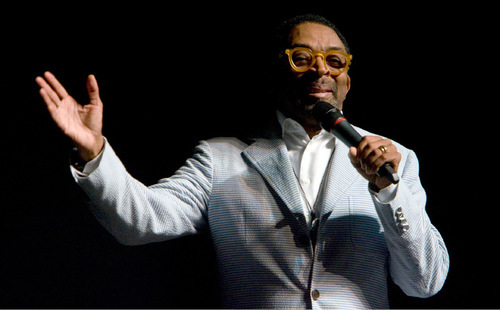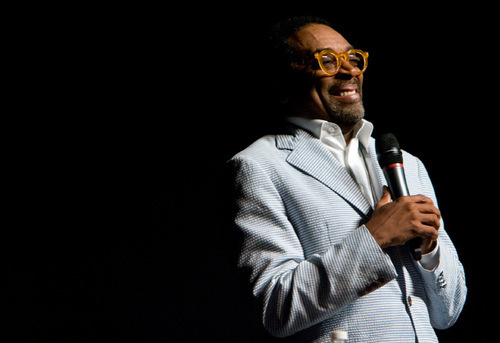This is an archived article that was published on sltrib.com in 2010, and information in the article may be outdated. It is provided only for personal research purposes and may not be reprinted.
Even now, after a quarter-century of making movies about racial issues, Spike Lee says "race is this great big elephant in the room" — and it's only going to grow.
By 2035, Caucasians will no longer be a majority of the population of the United States, the filmmaker told a packed audience Tuesday night at Kingsbury Hall as he delivered the University of Utah's annual Tanner Lecture on Human Values. "Maybe not in the state of Utah," he added, getting a huge laugh from the audience, made up of people of many races. "It's gonna take longer than that [in Utah]."
That elephant cannot be ignored any longer, Lee said. "America will never be as great as it can be until we talk about that," he said.
In a thoughtful and personal talk, Lee — wearing tortoise-shell glasses and a blue-and-white suit jacket over a white shirt, white pants and white Nikes — talked candidly about race in the United States, how issues of race touched his upbringing and his desire to become a filmmaker, and how race has been at the forefront of some of his most important films.
Growing up in Brooklyn, Lee said, "the richness of the African-American experience, which I could see standing on the corner looking out the window, was absent for the most part in films and television." The exceptions were Sidney Poitier movies and the TV series "Julia," which starred Diahann Carroll as a nurse.
He recalled watching TV and seeing Elizabeth Taylor in the 1964 epic "Cleopatra," Lee said, "My mother grabbed me and told me, 'Cleopatra doesn't look like that.' "
Lee noted that one of the first important movies was D.W. Griffith's "The Birth of a Nation," a rank endorsement of the Ku Klux Klan, and one of television's earliest hits was "Amos 'n' Andy," a comedy with actors in blackface. "These great mediums have been used to give misrepresentations of people," he said. "If you see an image long enough, if it keeps getting fed to you again and again and again, you're going to believe it."
Lee talked about several of his films in which he confronted racial issues, offering his audience insider information along the way. He recalled the harsh criticism of "Do the Right Thing," and accusations that it would prompt rioting. (He quoted one critic who wrote, "Pray to God that this film does not open in your neighborhood, and do not go see it with a black audience.") Lee also recounted how Denzel Washington researched hard to portray Malcolm X, in order to "let [his] body become a vessel, so Malcolm's spirit can come through [him]."
Touching on current events, Lee cited the surge of anti-establishment conservatism — he derisively referred to "tea-baggers" — and the fervor over a proposed Islamic center in lower Manhattan, and said, "We're in a very crazy place now."
Throughout history, "we have a tendency to always look for the boogeyman in this country," Lee said. "Now we all know who the new boogeyman is, where every person of the Islamic faith is [perceived as] a terrorist. And that's crazy, too."
During the Q-and-A session, Lee tried to be encouraging to audience members who sought advice. To a Salt Lake City black businesswoman who has dealt with discrimination, Lee said simply, "Utah does not have the copyright on racism or discrimination. We have that in New York City. … You have to overcome it. … You can't let hurdles stop you."







